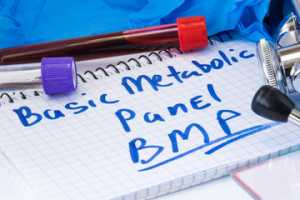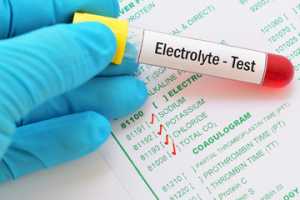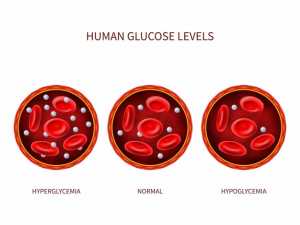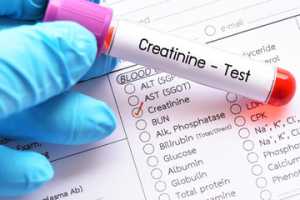Basic Metabolic Panel(BMP) Test- Purpose, Procedure And Results
What Is BMP?
The basic metabolic panel or BMP is a combination of eight blood tests which is used to evaluate kidney health, measure the glucose and calcium level in the blood and check electrolyte and fluid balance. All these are related to the body’s metabolism.
BMP can be used to diagnose, screen and monitor various medical conditions, for instance, hypertension(high blood pressure), kidney diseases and diabetes.

What Is Included In A Basic Metabolic Panel?
BMP includes the following tests-
Glucose– It is the major source of energy for our cells. For adults, the normal blood glucose level is 70-99 mg/dL. Abnormal glucose level indicates hypoglycemia or diabetes.
Calcium– It is the most important and abundant mineral in our body, essential for-
- Blood clotting
- Bone formation
- Proper functioning of heart and nerves
- Muscle contraction
- Release of hormones
For adults, the normal calcium level is 8.6-10.2 mg/dL.
Higher or lower calcium level indicates a problem with pancreas, kidney or bones or indicates a hormone imbalance.
Sodium- It is an essential electrolyte(mineral) that helps maintain normal blood pressure, proper functioning of nerve and muscle, maintain blood and fluid volume in the body etc. For adults, the normal sodium level is 136-145 mEq/L. Low levels of sodium in the blood can be due to kidney, liver or heart failure.

Potassium- It is an electrolyte essential for muscle and nerve functioning, cell metabolism, regulating fluid ratio etc. For adults, the normal potassium level is 3.5-5.1 mEq/L. High potassium levels indicate Kidney disease.
Bicarbonate(CO2)– It helps to maintain the pH of our body. The kidneys and lungs balance the carbon dioxide level in our blood. For adults, the normal Bicarbonate level is 23-29 mEq/L. Measuring the level of Carbon dioxide can help to diagnose a kidney disorder.
Chloride- This electrolyte helps to maintain the acid-base balance, maintains blood pressure and regulates the amount of fluid in our body. For adults, the normal chloride level is 98-107 mEq/L. An elevated level of chloride may indicate adrenal gland disorder or kidney disease.
Creatinine- It is a chemical waste product which is produced in the muscles. Our kidneys eliminate creatinine from our body. Higher levels of creatinine in your blood indicate kidney problems. Normal creatinine level is 0.9 to 1.3 mg/dL for men whereas 0.6 to 1.1 mg/dL for women.
Blood Urea Nitrogen(BUN)- Urea nitrogen is another waste product created in the liver. Urea nitrogen is filtered out from our body through urine. An elevated level of urea nitrogen indicates kidney or liver problems. For adults, a normal BUN level is 6-20 mg/dL.
Preparation
The BMP test can be either performed without any preparation, in case of emergency or it can be performed after fasting, during routine health exams. Based on the reason for testing, you will be instructed to fast 8 hours prior to the BMP test. Let the doctor know about over-the-counter medicines or supplements that you are taking.
Procedure
In the case of infants, the healthcare professional draws the blood by puncturing the infant’s heel using a small needle. For adults, a healthcare professional will clean the skin surface using an antiseptic, and tie an elastic band around your upper arm so that the vein will swell with blood. A small needle is inserted into the vein in your arm to draw a sample of blood. The blood will be collected in a test tube or vial. The needle is removed, once the blood is collected, and the elastic band is also removed. The blood test normally lasts for a few minutes. There are no risks associated with a BMP test. You can get the results of a BMP test after a few hours or on the next day. In case of emergency, parts of a basic metabolic panel test result are available within a few minutes.
What Do The Results Indicate?
Sugar Metabolism
If your fasting blood glucose level is above 126mg/dL, it may indicate diabetes. High blood glucose may indicate certain types of pancreatic cancers and conditions such as hyperthyroidism. On the other hand, low blood glucose level many indicate abnormally inactive adrenal, pituitary or thyroid gland.

Electrolyte Panel
Elevated bicarbonate levels can be caused by metabolic disorders, breathing problems, hormonal imbalance or even Cushing’s syndrome. Lower bicarbonate levels can be caused by kidney disease or Acidosis (increased build-up of acid in the blood).
Low level of calcium levels can be due to-
- Vitamin D deficiency
- Inactive parathyroid gland
- Renal or liver failure
- Pancreatic disorders
Higher levels of calcium can be due to certain cancers or parathyroid disorders.
Low level of sodium in the blood can be due to kidney, liver or heart failure or hormonal abnormalities- for instance, Hypocortisolism (a disorder in which adrenal glands produce too little aldosterone and cortisol) or Syndrome of inappropriate antidiuretic hormone secretion(a condition where the body produces too much Antidiuretic hormone). High levels of sodium in the blood can be due to hypercortisolism or diabetes insipidus.
Low levels of potassium can be due to hormonal imbalance or due to the usage of diuretics (a drug that promotes diuresis). Elevated potassium level may indicate kidney disease.
Low levels of chloride in the blood may indicate congestive heart failure or Hypocortisolism. Elevated chloride level may indicate metabolic acidosis (an electrolyte disorder in which there is an increased amount of acid in body fluids).
Low creatinine level may indicate Myasthenia Gravis(a disorder characterised by weakness in skeletal muscles) or muscular dystrophy( a group of disorders characterised by loss of muscle mass). Elevated creatinine level may indicate pre-eclampsia(a condition where there is a sudden increase in blood pressure in pregnant women), muscle disorders or kidney disorders.

Lower BUN level may indicate a liver problem. Elevated BUN levels can be caused by hypovolemic shock(a condition where there is a sudden loss of body fluids), congestive heart failure, renal failure or kidney disease.
Frequently Asked Questions(FAQs)
How is BMP different from the CMP?
BMP full form is Basic Metabolic Panel whereas CMP stands for Comprehensive metabolic panel. BMP includes 8 blood tests whereas CMP includes 14 blood tests, which comprise of the 8 blood tests from the BMP, 4 liver tests(bilirubin, ALT, ALP and AST) and 2 protein tests(total protein and albumin).
Is BMP conducted as a panel?
No. Each of these tests will be ordered separately. But if your doctor wants to analyse more than 2 components, then the doctor may order an entire BMP, since it provides more information.
If one of the results from the BMP test is slightly out of range, what does it indicate?
The result of a single test, which is slightly low or high, doesn’t have any medical significance. The BMP results are evaluated by the doctor taking into consideration the other tests that you have done and your medical history.
When is BMP ordered?
It is ordered as a part of routine health exams. BMP is also ordered to monitor an ongoing or long-term medical condition.
What might affect my test results?
Different over-the-counter medicines and supplements can affect the BMP test results. Therefore it’s important that you need to tell your doctor regarding the medicines that you use, as well as your complete health history.
What are electrolytes and which all electrolytes are measured in a BMP?
Electrolytes are minerals found in blood and body tissues. In a BMP test, electrolytes such as Sodium, Potassium, Bicarbonate and Chloride are measured.
What does abnormal glucose level indicate?
If your blood glucose level is between 100 to 125mg/dL, it indicates impaired fasting glucose, which is a type of prediabetes. If your glucose level is above 200mg/dL, it indicates that you have diabetes.
In case of abnormal level of any of the BMP results, further testing is required to determine the cause of the medical condition. Talk to your doctor to know more about what abnormal levels of each BMP component indicate.